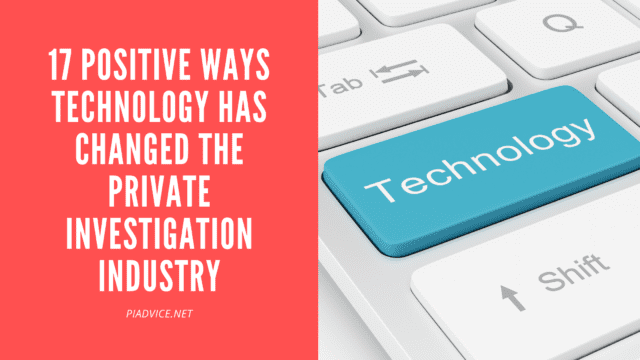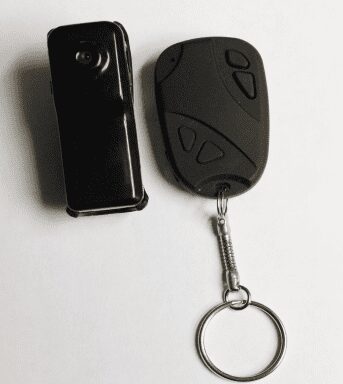Technology, as it relates to private investigators, has changed dramatically as technology only moves forward and never moves backward. Something as simple as how video cameras have evolved in the last 35 years is an example of fast innovation has happened which has benefited private investigators.
Here is the moral of the story, any additional information that a private investigator can secure legally through technological advancements, can make investigators more efficient, keep investigators safe and allow investigators to make better decisions in the field.
Private investigators have done a great job at taking technology that was designed to better society and make life easier, to be able to perform their duties of investigation more efficiently and more accurately. As you read on you will see how items specific to private investigators have evolved as well as how technology has changed the private investigation industry for the good. Let’s get into it.
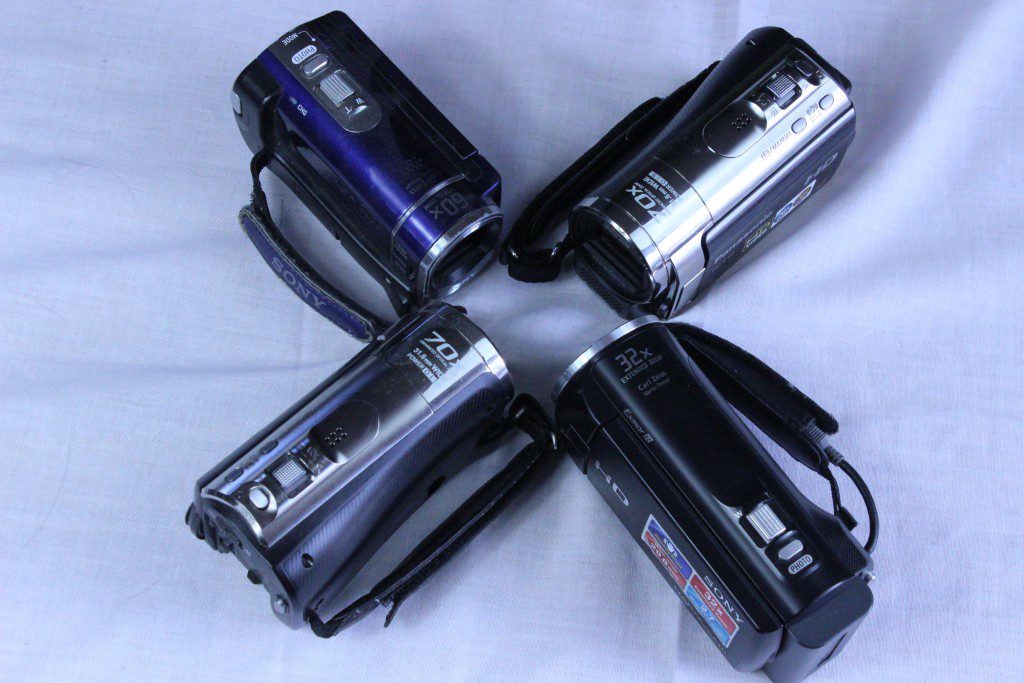
Contents
- 1 Technology has changed Video Cameras for Private Investigators
- 2 From Paper Maps to GPS Mapping Systems
- 3 Aerial Maps
- 4 Google Street View
- 5 Real estate Apps
- 6 Private Investigators Use Drones
- 7 Technology has Changed the Private Investigation Industry with Social Media
- 8 Public Records Searches
- 9 Covert Camera Advancement
- 10 Mobile Internet Access is a GameChanger
- 11 Sending Videos Clients (From Snail Mail to Digital)
- 12 Second Phone Numbers for Investigators
- 13 Burner Phone Number Apps
- 14 Power Banks
- 15 Extended Recording Devices
- 16 Covert Cellular Recording Devices
- 17 GPS Tracking Devices
- 18 We have come a long way
Technology has changed Video Cameras for Private Investigators
Well before my time as a private investigator, investigators were using VHS camcorders to document the activities of subjects. Those cameras were so incredibly big is would have definitely been a struggle for investigators to use those and battery life would have been very limited.
VHS cameras evolved to 8mm cassette video cameras which I was familiar with as my father purchased one for family videos when I was a child. These cameras were much smaller than the VHS camcorders and their battery life was much longer.
When I first became a private investigator with a nationwide investigation company I was issued a Sony Handy Cam which had a great zoom and even night vision. It was an incredible camera but much heavier then the camcorders we use today. At least it felt heavy when holding it by hand for extended periods of time. The camera was still relatively large though it could fit in a bag and be connected to a pager spy camera when needed.
From the 8mm cassette investigators began dabbling with the mini DVD camcorders but they were replaced by mini DV cameras very quickly. The Mini DV camcorder was much like a smaller version of the 8mm camcorder and the tape cassettes were smaller as well.
With cassette tapes, nationwide investigation companies required investigators to ship those tapes after surveillance assignments were completed. The tapes were labeled with dates of surveillance, the subjects name, case number, and amount of subject video that was obtained. These tapes were also accompanied by a Chain of Custody form.
Eventually, technology took camcorders from a cassette tape format to a digital format with memory cards being used to record footage. Admittedly I personally had used cassettes for so many years I was nervous about switching to a video camera with a memory card.
The benefits of a digital camcorder that used memory cards outweighed my concerns. The cameras became so small they could fit into a coat pocket or even front pant pockets. These cameras were lightweight and incredibly portable and have truly made videotaping covertly and even in public much easier.
One thing that did change was that timestamp was not generated on each video file and it would take an extra or several extra steps to ensure the proper date and time of the video that was imprinted on the video files.
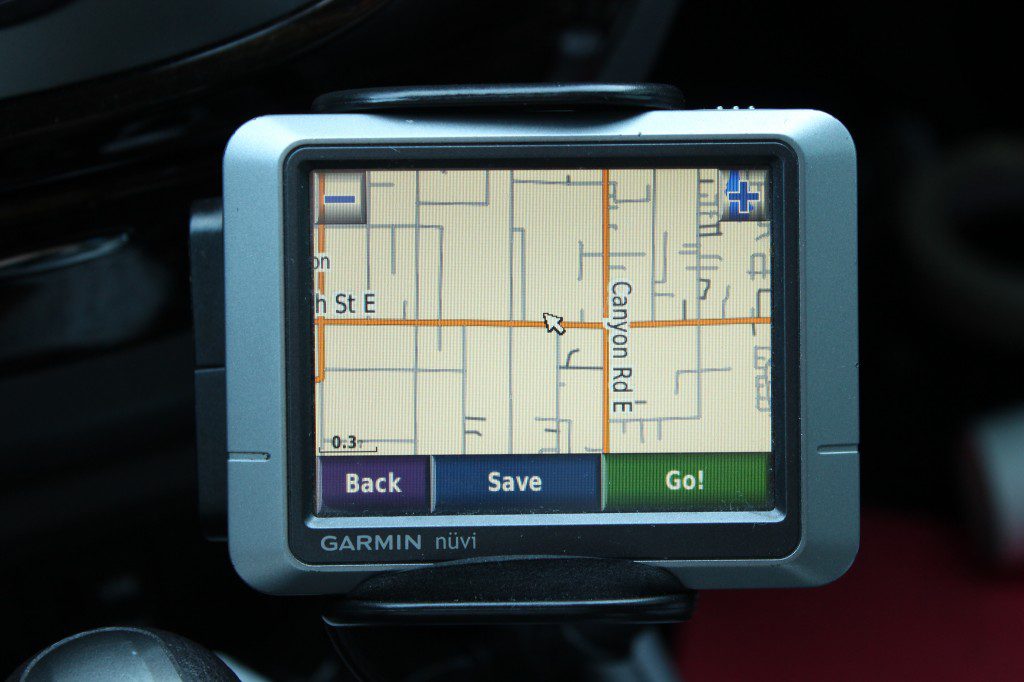
From Paper Maps to GPS Mapping Systems
Prior to the internet, investigators had to use maps and map books to locate the addresses of subjects or any other location. Investigators did not have the internet or technology to find locations. When investigators had a difficult time locating addresses they would call the police department or fire department in an attempt to find the location using cross streets. This was a painfully slow process and delayed the time investigators could get started on their surveillance assignment.
The Microsoft Streets and Trips mapping software was a huge leap for investigators as they could map their travel from their home location to a subject’s location much easier. Investigators many times would have their computers open with the map system up on the screen so they could visually see where they were as they traveled to their locations.
GPS devices later became available to the public and many investigators purchased them to make traveling and mapping much easier. For many private investigators, the GPS devices provided by companies like Garmin made it much easier for investigators to arrive at a location with little effort and preparation. Having a GPS device also makes it easier for canvassing for a lost subject as an investigator can search for stores in the area that a subject may travel to.
GPS Devices later evolved to mapping applications on phones which became another game-changer. Map apps like Google Maps, Apple Maps, and Waze were game-changers. These apps were more user-friendly and integrated with search engines. While mapping applications on phones had their advantages, they were limited by cellular coverage (not as much of an issue now though). GPS devices are not governed by cell towers and cellular coverage so they will work in just about any location.
Aerial Maps
Aerial maps were not something a private investigator had easy access to but thanks to Google Earth, anyone from anywhere can basically see the layout of an entire area. This is helpful for private investigators to see in advance, all types of terrain and layouts.
Google Street View
Google, being fully invested in maps took it to another level and started mapping streets all over the world. A private investigator could literally see the house they were going to conduct surveillance on and the vehicles that one might expect to see upon arrival to surveillance. Many times a private investigator could see a residence from other sources like property records. Other ways to see a residence were though websites like Zillow or Redfin but I don’t believe these sources were available when Google Street View hit the scene.
Real estate Apps
Real estate apps like Zillow in many cases help a private investigator go directly to the county website to verify or determine the property records of a residence quickly. It also allows the investigator to get an idea of the property of a residence depending on photos that have been taken of a residence when sold. If you would like to see the quick property records search hack, I share it here using Zillow.
Private Investigators Use Drones
20 years ago a private investigator would have never dreamed they would have access to an on-the-shelf drone with an amazing camera attached to it. Nor would a private investigator have thought it would avoid obstacles or practically fly itself.
There are many laws that surround the use of a drone and those laws are still evolving. Privacy and safety are the general concerns of anyone when they see a drone.
Private investigators have mentioned to me that they utilize drones to get a better view of properties or areas that they just can’t see from the main road.
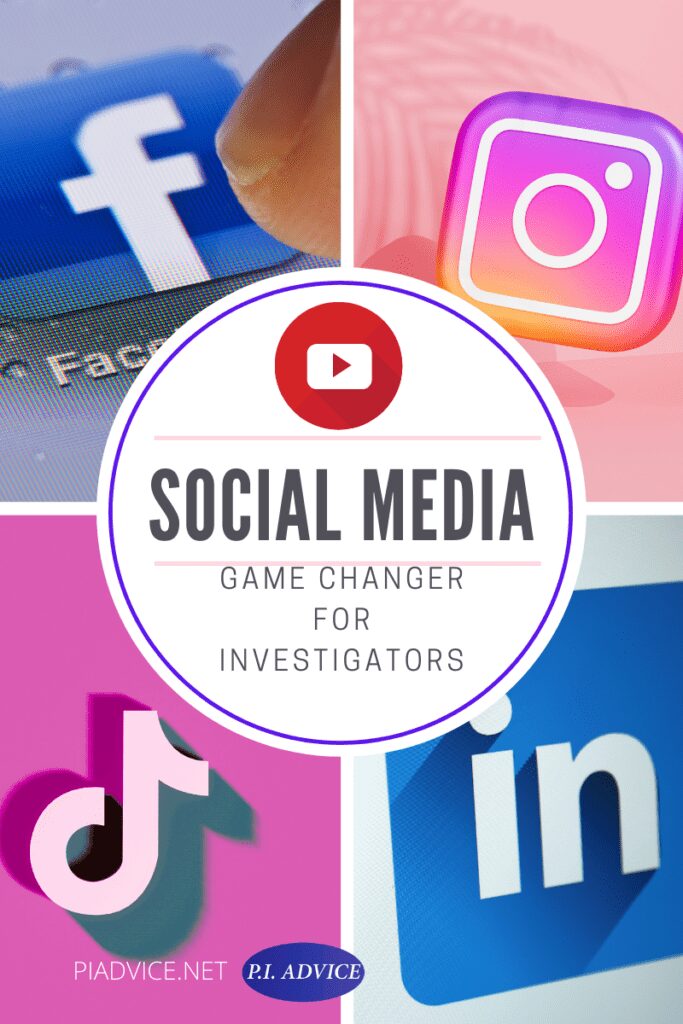
Technology has Changed the Private Investigation Industry with Social Media
I became a private investigator before social media was a thing. Social media has led everyone to believe they have private investigator skills because information is so easily found now. Before social media private investigators searched the limited internet for photos and information about subjects but more times than not they would come up with nothing. Social media was a game-changer for investigators in providing extra information to help an investigator investigate.
Social media really began with MySpace and private investigators began using MySpace as a way to locate pictures of subjects and families as a way to learn more about them.
Facebook came along and provided even more information for investigators to gather as it is still the most used social media platform. Now investigators can leverage sites like Twitter, Instagram, LinkedIn, and other sites to locate information about the subject under investigation. It has been an invaluable asset in more ways than I can describe in this article.
Public Records Searches
Public records before the age of the internet would require a private investigator to a courthouse to locate records. Don’t get me wrong, this still happens quite a bit however investigators can locate court cases online and even request documents which can save time and money.
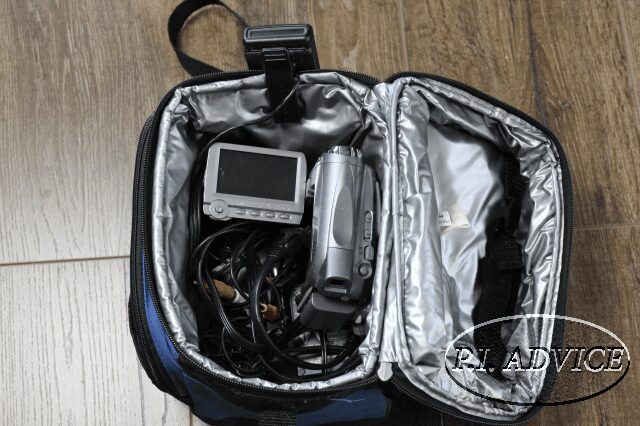
Covert Camera Advancement
Covert cameras have advanced quite a bit from being clunky and complicated to small and portable.
In 2003 many private investigators were using a pager hidden camera that would plug into a video camera and record onto the camera’s cassette tape. Private investigators would have to carry their large video camera in a bag with their pager camera attached to the outside of the bag. It worked well in many ways but not well in a lot of other ways.
Technology evolved and more compact spy cameras were available to the public and private investigators began picking them up. Now you can purchase:
- Hidden Camera Sunglasses
- Spy Pen Cameras
- Key Fob Cameras (808 Keychain)
- Fancy Key Fob Hidden Cameras
- Button Hidden Cameras
In some cases now, private investigators opt to use cell phones to obtain video footage covertly however this doesn’t work in all situations.
In 2003 phone technology wasn’t capable of providing 4K video footage but now it is a reality. Since this is the case, investigators increasingly look for opportunities to use cell phones for “covert documentation.”
Mobile Internet Access is a GameChanger
In the early 2000s, there was no mobile internet. AOL was just hitting the scene and that was dial-up internet access. Basically, your computer had to be plugged into a phone cord to get internet access.
Wifi eventually became a thing in people’s homes but that doesn’t help a private investigator in the field, or does it?
Most computers in the early 2000s didn’t have the capability of getting internet unless investigators drove around neighborhoods and borrowed unprotected wifi by parking in front of someone’s house.
Many investigators however started purchasing air cards for their computers. Air cards like the one from Verizon wireless that I had would plug into your computer and give you cell internet access. This technology was huge for investigators who were able to research further if needed while in the field.
From Air Cards to technology moved to mobile hotspots which companies like Verizon and Clear offered. I also purchased these devices to make sure I had internet access while in the field. All this internet access got a bit pricey but it was well worth it for investigators.
Eventually, phones were able to provide their own hotspots which really eliminated the need for mobile hotspots and the need for an extra bill.
The moral of the story is having internet almost no matter where you are is an incredible benefit for investigators to be efficient while in the field. We take these advancements for granted but investigators at one time had to do without and it made things much more difficult.

Sending Videos Clients (From Snail Mail to Digital)
20 years ago as we discussed earlier, it was quite a production to get video from the investigator to the investigative company to process the video and get it prepared for the client. Moving the video from the camcorder cassette to a VHS tape and then sending that video to the client took a lot of time.
As time went on and technology advanced, investigators and investigation companies were able to say goodbye to the use of FedEx, UPS, and Airborne Express to ship their video documentation.
How was this possible? Many investigation companies built platforms to allow investigators to securely upload surveillance footage and any other type of documentation to the company for processing.
Smaller companies that didn’t have money for their own platforms used companies like Hightail to send large files over the internet. Being able to send video and other evidence over the internet saved so much time for all parties.
Second Phone Numbers for Investigators
Business owners 20 years ago generally speaking would have to purchase a second line to have a professional phone number for clients to call. Most investigators didn’t want to do this.
Along came Google Voice as an option for private investigators to have a second phone number that they could answer from their primary cell phone. Google offered it for free and of course, I took advantage of it after starting my investigation business.
If you are reading this and you would like a second phone number, look into Google Voice or a burner number which I will get into next.
Burner Phone Number Apps
Before burner phone number apps (temporary phone numbers through an app), if investigators wanted to call a subject of an investigation to conduct a pretext, they would have to block their number on their cell phone *67, or they would drive over to a payphone (A phone in a public area that required coins to make a call).
Many times people would not answer a call from a blocked number but they would answer from a local number, like a call from a payphone.
Investigators always took a chance on a surveillance case that their subject might depart when they traveled to a payphone. This is why burner phone number apps became a cool asset to have.
Biting off the seconding phone number idea that Google had, the Burner App and the Hushed app hit the market, and later apps like Phoner emerged. They allowed you to purchase a temporary number for a limited time to make phone calls and text capabilities using the temporary number. I would usually purchase a temporary number for a couple of dollars to make phone calls when a payphone was nowhere to be found and I didn’t want to reveal my personal cell phone number on a call. I could choose a local number which made the chances of someone answering my call even better.
These apps allow you to have the ability to create a phone number from numerous area codes and countries. It’s pretty incredible technology and it has been a huge help for investigators.
Power Banks
Powerbank technology started with portable jump starters for your vehicles. These power bank portable jump starters would also have plugs that you could plug devices into and usually had an air pump as well. This technology was a lifesaver for me. I currently have two CAT power stations that have a digital air compressor, jumper cables and USB ports, and AC plugs. You can pick this one up on Amazon here.
While this section isn’t about jumpstarters, those larger power banks have been improved upon and jumpstarters themselves have become incredibly small which I have reviewed in the past. And similar ones can be purchased on Amazon.
Powerbanks unrelated to jump starters did get smaller and allowed for people, and investigators to charge devices on the go. This became incredibly useful for situations where an investigator did not have access to a traditional power supply and needed to charge a phone, a spy camera, a video camera, and even a computer.
The NOVOO 22500 mAh Powerbank with AC is a device that I have reviewed in the past (the previous version) and provides that AC outlet to plug-in devices that can’t be charged by a USB plug like video cameras and computers. This is huge for private investigators in the field.
An affordable, rugged, and water-resistant power bank is the FosPower 10,050 mAh USB C power bank. I purchased mine in 2015 and it works great. You can see my review of the FosPower power bank here.
Other power bank recommendations are:
Extended Recording Devices
In some situations, investigators need a better idea of the coming and goings of places or people. It’s expensive for a client to pay for investigators to conduct surveillance efforts 24 hours a day to see patterns of behavior at a location. Zetta came out with a small camera that has the capabilities of recording 10 hours straight on its internal battery and up to 200 hours straight when connected to a power source (like a power bank) and with a 256GB memory card inserted. This camera is an affordable asset for private investigators to document activity at a location without having to be present.
Can be purchased here on Amazon
Covert Cellular Recording Devices
There are companies that have created remote cellular covert video cameras that can run for a week at a time on one or two small batteries (like a motorcycle battery). The camera system is connected to a cellular card so an investigator can see what is happening at a location over an extended period of time without being physically present. This is good for rural locations or locations where investigators want to determine what vehicles come and go from a residence and what direction they travel. The camera system is placed in a box that looks like a telephone or electrical box and can be attached to a telephone pole. The systems can be expensive to purchase but well worth having.
GPS Tracking Devices
GPS tracking devices have come a long way and can be purchased on Amazon relatively inexpensively. For under $20 you can purchase a tracking device and pay in many cases roughly $20 a month to track the device.
With that being said, many people can track loved ones on iPhones with the Find my Phone feature.
Two devices I have purchased from Amazon:
We have come a long way
All the technology advancements listed here either didn’t exist or improved dramatically over the last 20 years to truly make being a private investigator easier in many aspects. If I missed something let me know in the comments. I look forward to seeing how more advancements in technology can help investigators even further.

Recent Posts
Hawaii is probably one of the most interesting states to work as a private investigator if you are not used to the culture or a native of the state. And if you are not a local, that is something...
How to become a private investigator in Georgia

